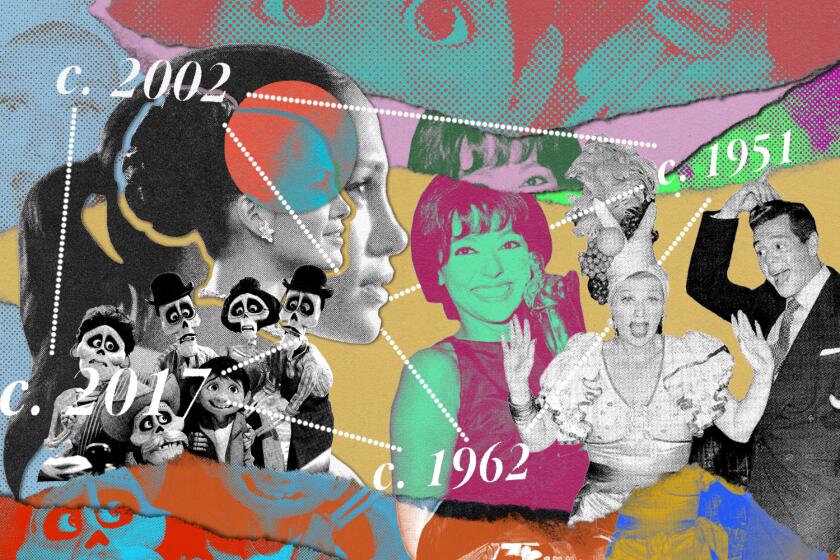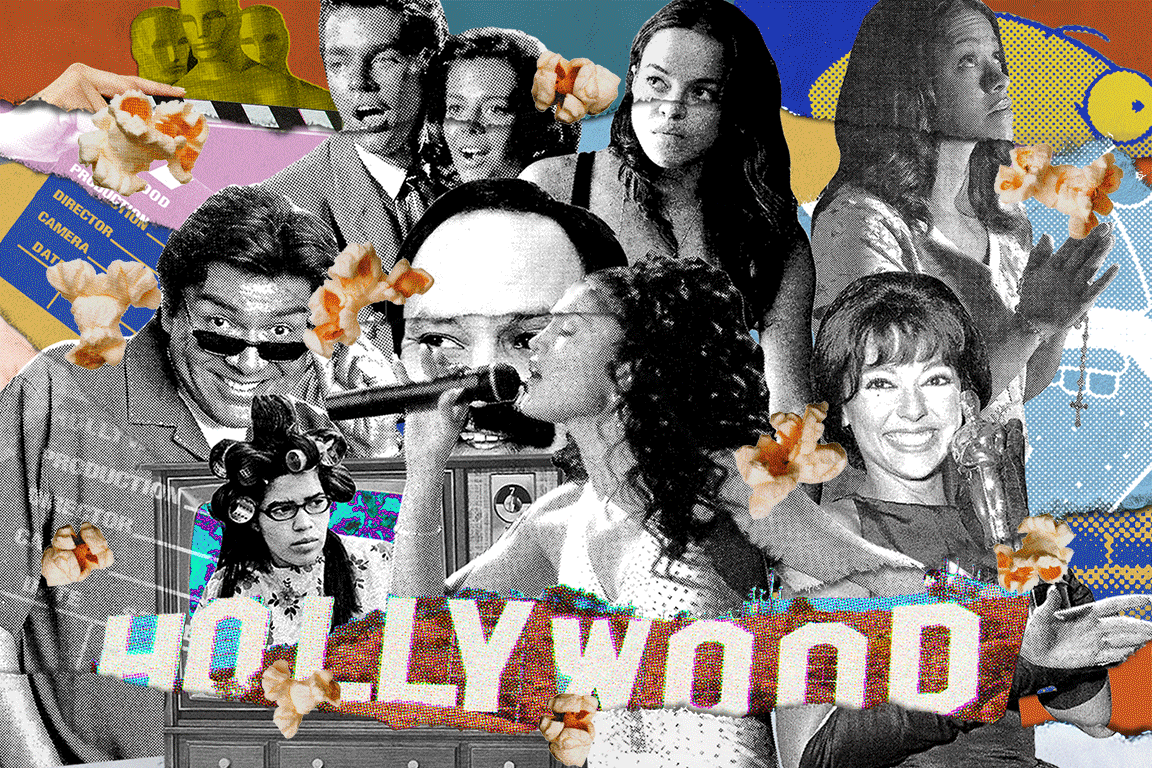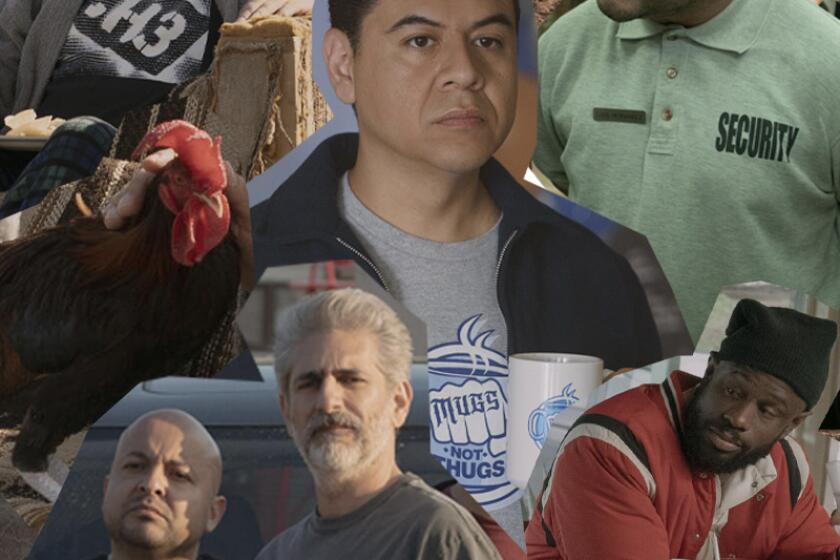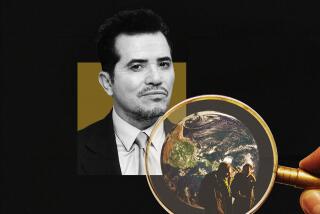Column: ‘This Fool’ got L.A. Latinos right. Who’s to blame for its cancellation?
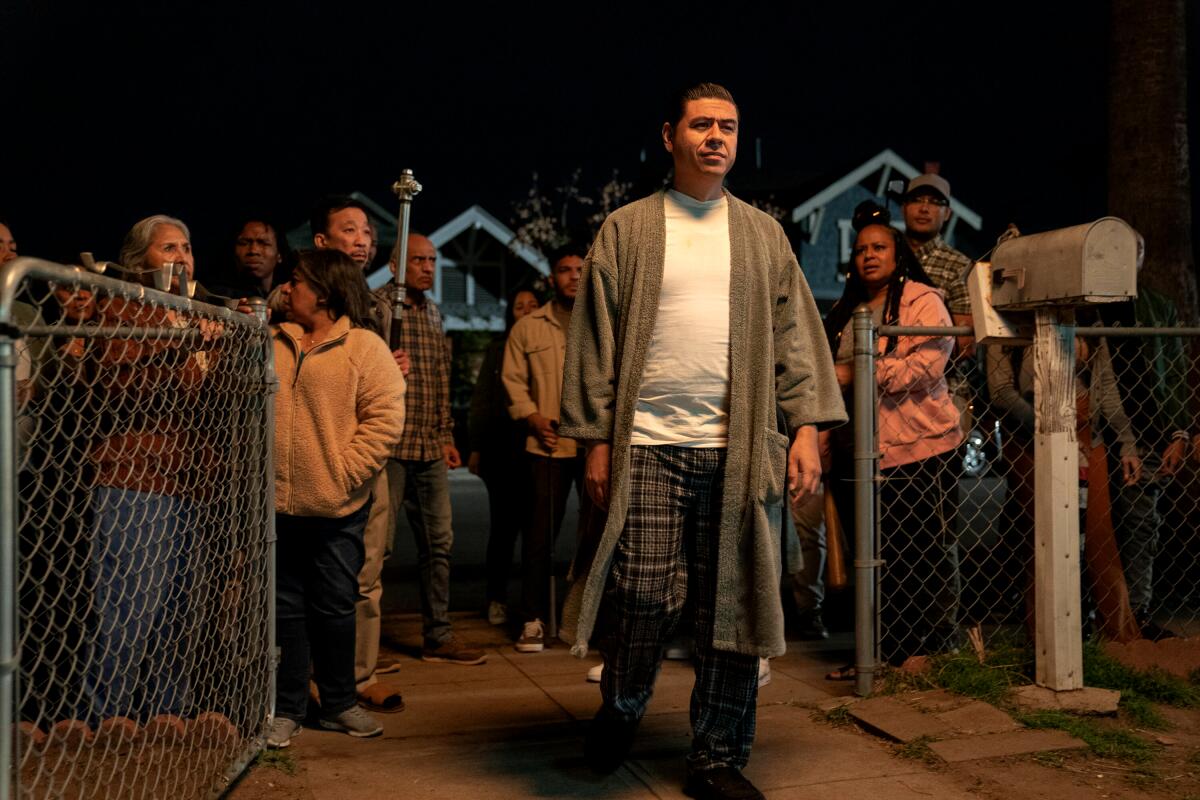
- Share via
Whenever the latest television show starring Latinos as something other than narcos, maids or immigrants — you know, as just regular people — gets canceled, I think of Chris Rock.
In 2014, my all-time favorite stand-up comic wrote an essay for the Hollywood Reporter that remains one of the best Tinseltown take-downs I’ve ever read. He attacked the lack of diversity in film and television, calling it “a white industry” that wouldn’t take chances on young Black comics and still categorized successful Black-led projects as niche efforts instead of the mainstream hits they were.
Rock fired his most ruthless critique, however, at the industry’s lack of Latinos in a city where we’re nearly half the population.
Expectations are big for “In the Heights,” the rare Hollywood blockbuster to tell a Latino story from Latino creators and a mostly Latino cast. At this watershed moment, we look back on the complicated history of Latinos in Hollywood with a few significant highs and lows.
“You’re in L.A.,” he wrote, “you’ve got to try not to hire Mexicans.” Rock went on to describe Los Angeles as a “slave state” where there’s an “acceptance that Mexicans are going to take care of white people … that doesn’t exist anywhere else.”
The essay holds up a decade later, even as diversity has increased in Hollywood. Black creatives such as Taraji P. Henson, Michael B. Jordan and Quinta Brunson have starred in critical and commercial smashes that highlighted their talents in front of and behind the camera. Asian American advocacy groups campaigned to ensure that productions like “Fresh Off the Boat” and “Crazy Rich Asians” started strong.
And still, not enough Latinos have gotten there — not for a lack of trying, either from them or the industry Rock decried.
Since Rock’s piece, a run of television shows has depicted Southern California Latino stories that have rarely earned Hollywood’s attention. “East Los High,” which aired on Hulu from 2013 to 2017, was a typical high school soap opera that just happened to take place in East L.A. Netflix streamed two similar teen tales: “On My Block” was set on a fictional campus in South L.A. (and spawned its own spinoff, “Freeridge”), while “Mr. Iglesias” chose the real-life Wilson High in Long Beach for its chuckles, with Rock’s comic contemporary, Gabriel Iglesias, in the title role.
Two other shows, “Vida” and “Gentefied,” depicted the clashes over gentrification on the Eastside. Meanwhile, a reboot of the Norman Lear sitcom “One Day at a Time” told the story of a multigenerational Cuban American family in Echo Park. Rounding out the slate was “This Fool,” a Hulu comedy about working-class South L.A.
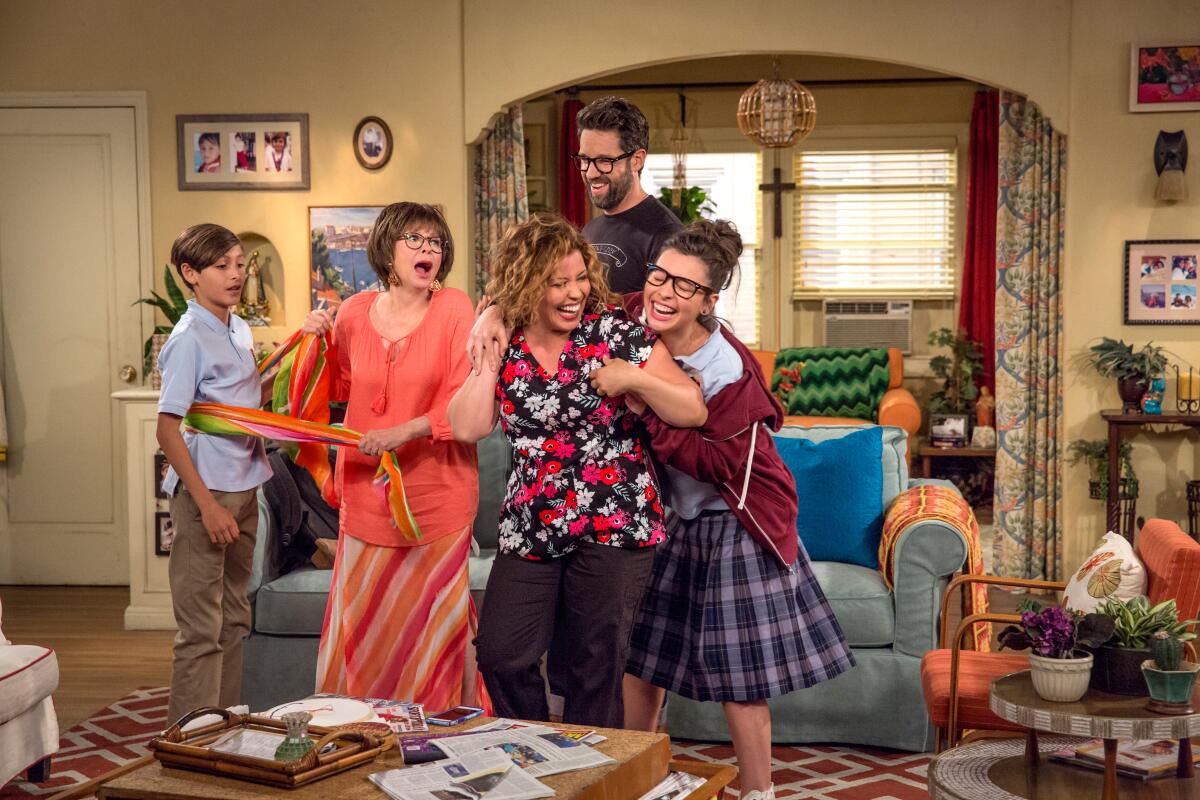
Each series did a great job depicting the sections of the city and the communities they sought to represent. They won devoted fan bases. All shared the same, sad fate: low ratings that led to cancellation, with “This Fool” getting the ax last week.
Its untimely end brought the same reaction as previous cancellations — disappointment, hashtags (share #savethisfool with your homies, por favor) and, especially, anger that Hollywood still doesn’t have enough shows starring Latinos and doesn’t seem to back the few that get made.
Those reactions are understandable, even righteous. Yet the guiltiest parties always seem to get a pass: the people, especially Latinos, who aren’t watching.
Shows with diverse casts tend to get higher ratings, and Latinos like to see themselves on television, according to data compiled in UCLA’s Entertainment and Media Research Initiative annual Hollywood diversity report. The rub is how those shows depict Latino life, and how dedicated Latinos are to supporting programs that center them.
Hollywood’s Latino culture gap: How new and veteran creators are working to reverse a brutal history
A Times report on the many-layered history of Latinos in Hollywood, the low representation figures and what TV and movie creators are doing about it.
The only Latino-themed shows to rank among the top 10 most-watched programs for a non-Latino ethnic group in six years of the UCLA study were the narco-drama “Queen of the South” and “On the Block” — both favorites among Black viewers. The only Latino-themed show that appeared on the top 10 most-watched list more than once for Latinos was FX’s overwrought motorcycle gang drama “Mayans M.C.”
If we can’t support our own work, how can we expect others to do the same?
The UCLA reports go up only to the 2021-22 season, so it’s not clear if “This Fool” gained a significant following among Latinos or other viewers. Its abrupt end, though, says enough — and it’s a shame that more people didn’t watch.
Stand-up comedian and show co-creator Chris Estrada played Julio Lopez, an uptight Mexican American millennial who takes in his formerly incarcerated cousin (a scene-stealing Frankie Quiñones). Estrada is a South L.A. native, so his depiction of the area comes off as an “In Living Color” sketch made with love.
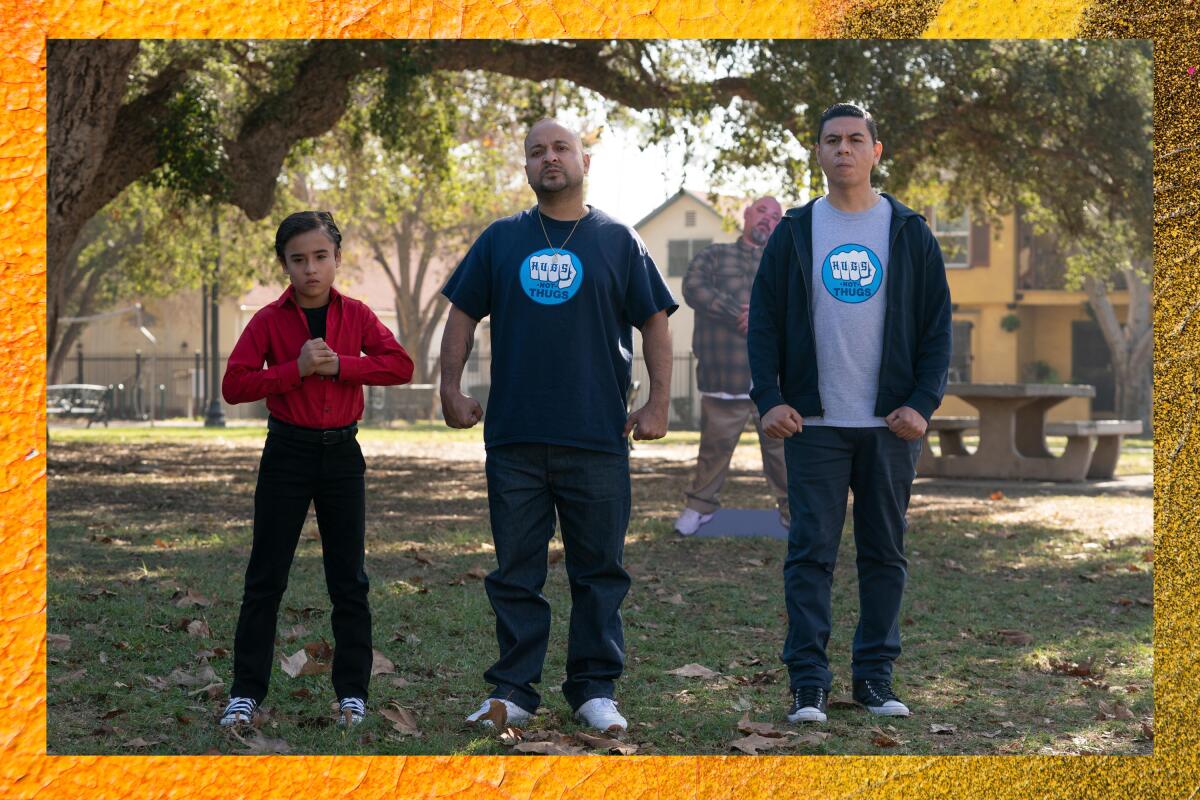
The first season was a parody of Homeboy Industries, down to reimagining founder Father Gregory Boyle as a foul-mouthed Unitarian Universalist minister played by Michael Imperioli. The second season took aim at hipster coffee shops, palm trees (“People think they make the neighborhood look nice,” Estrada’s Black neighbor snaps when a dried-out frond nearly falls on him. “But they’re killing us.”), the billionaire vultures colonizing the Southland’s desert communities, relations between Black and Latino residents, and car chases. The entitled culture of the LAPD gets ridiculed, too: in one episode, officers prolong a standoff so they can earn overtime, while the rookie cop — a Latino — who wants to save the hostages gets ostracized.
As good as the other L.A. Latino-centric shows were, “This Fool” sounded and felt like the city in a way they didn’t. The Spanish is paisa — countrified — while the English has the tough tone of someone who grew up off Vermont Avenue. In the vein of Lear’s 1970s blue-collar comedies, it hailed the protagonists’ common sense while not shying away from their struggles. Everyone was hustling to make it, from the homeless man who thinks he’s James Bond to the elderly woman selling flowers next to him. Characters take overcrowded buses to low-paying jobs, or wake up to the neighborhood rooster crowing at the break of dawn.
The Los Angeles depicted in “This Fool” was a rough-hewed paradise. The soundtrack ranged from rock en español to oldies-but-goodies to ska, hardcore punk, ranchera, and — of course — Randy Newman’s “I Love L.A.,” but this time cruising down Slauson Avenue instead of Santa Monica Boulevard.
America doesn’t mind a hyper-local TV series starring people of color. “Reservation Dogs” and “Insecure,” Issa Rae’s own ode to South L.A., became critical and ratings darlings because of cultural and regional specificity. So why didn’t that happen with “This Fool” and kindred shows about Latino L.A.?
“This Fool” relied on word of mouth after it premiered in 2022. A year later, it’s having to do the same.
The most-watched programs among Latinos on broadcast, cable and digital platforms in the 2021-22 season were “Chicago P.D.,” “When Calls the Heart” and “Stranger Things,” according to the latest UCLA report — a Windy City procedural, a drama set in frontier-era Canada and a supernatural thriller. If I were a studio executive looking to grab more Latino viewers, my takeaway would be that they will watch anything but their own day-to-day lives.
Estrada is a nice guy who was the guest judge at my annual KCRW Tortilla Tournament (no payment was exchanged, only tortillas). He and others who’ve poured so much time and care into their Hollywood projects are too polite to criticize viewers from their own community who didn’t show up for them. I’m not.
Hey, foos: The next time a Latino show premieres, tune in. When it gets canceled because not enough of you did, don’t blame Hollywood. Blame ourselves.
More to Read
Sign up for Essential California
The most important California stories and recommendations in your inbox every morning.
You may occasionally receive promotional content from the Los Angeles Times.
